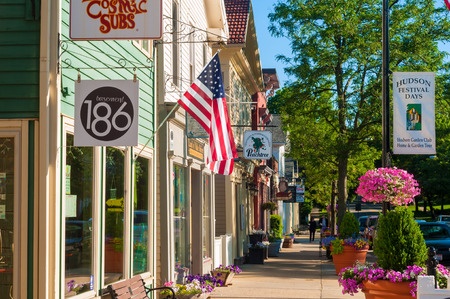Business Lending
#paytoday Small Business Coalition Formed in Response to Coronavirus
April 3, 2020 This week a cohort of businesses announced the formation of the #paytoday coalition, a union whose purpose is to promote the swift repayment of any receivables due to small businesses. The group, made up by Fundbox, SmallBizDaily, Womply, among others, was formed in the aftermath of covid-19’s rapid spread across the United States.
This week a cohort of businesses announced the formation of the #paytoday coalition, a union whose purpose is to promote the swift repayment of any receivables due to small businesses. The group, made up by Fundbox, SmallBizDaily, Womply, among others, was formed in the aftermath of covid-19’s rapid spread across the United States.
The coalition was the result of both conversations between the members about the fate of small businesses as well as long-term research, Fundbox Chief Market Office Leslie Olsen told deBanked.
“We’ve been working on it for a couple of weeks, but it’s really based on some pretty deep research that we’ve done over the years, and more recently last year, that exposed this issue that businesses have of paying each other, where there are typically a large number of outstanding receivables in the market at any given day,” Olsen explained.
According to Olsen and the #paytoday campaign, there is currently $900 billion in outstanding receivables owed to small businesses. This mass of unpaid money combined with the pressures of the coronavirus and the info gleamed from their research, such as the stat that nearly 40% of small businesses have 30 days or less worth of cash available, are what’s motivating the group to act.
Currently the collective is running campaigns to get the word out and encourage those who owe small businesses money to pay them. Beyond that, #paytoday hopes to grow in coalition size and eventually branch out with larger partners.
“In our social campaigns, we’re inviting businesses like Target and Walmart, the Fortune 100 and 50, to see if they will join us as well as smaller businesses,” Tim Donovan, a spokesperson for Fundbox noted. “If you think about large enterprises and how many vendors they deal with on a regular basis, it could be thousands. So we’re trying to think about how we can create the biggest impact by having these bigger enterprises join the movement.”
PPP Lender Requirements
April 3, 2020Update: The PPP Lender Application is HERE
The elusive application to apply for PPP lender-approved status is expected to become available sometime on Friday. In the meantime, the SBA has published the requirements that a financing provider will have to meet to be eligible for approval. Federally insured depository institutions are already approved so these bullet points apply mainly to non-bank financing providers and online lenders.
- Must already originate, maintain, and service business loans or other commercial financial receivables and participation interests
- Have already been in compliance with the Bank Secrecy Act since at least February 25, 2019
- Have already originated, maintained, and serviced more than $50 million worth of business loans or other commercial financial receivables during a consecutive 12 month period in the past 36 months, or is a service provider to any insured depository institution that has a contract to support such institution’s lending activities in accordance with 12 U.S.C. Section 1867(c) and is in good standing with the appropriate Federal banking agency.
Loan underwriting requirements
- Confirm receipt of borrower certifications contained in Paycheck Protection Program Application form issued by the Administration;
- Confirm receipt of information demonstrating that a borrower had employees for whom the borrower paid salaries and payroll taxes on or around February 15, 2020;
- Confirm the dollar amount of average monthly payroll costs for the preceding calendar year by reviewing the payroll documentation submitted with the borrower’s application; and
- Follow applicable Bank Secrecy Act requirements
Notes from the SBA:
Entities that are not presently subject to the requirements of the Bank Secrecy Act, should, prior to engaging in PPP lending activities, including making PPP loans to either new or existing customers who are eligible borrowers under the PPP, establish an anti-money laundering (AML) compliance program equivalent to that of a comparable federally regulated institution. Depending upon the comparable federally regulated institution, such a program may include a customer identification program (CIP), which includes identifying and verifying their PPP borrowers’ identities (including e.g., date of birth, address, and taxpayer identification number), and, if that PPP borrower is a company, following any applicable beneficial ownership information collection requirements. Alternatively, if available, entities may rely on the CIP of a federally insured depository institution or federally insured credit union with an established CIP as part of its AML program. In either instance, entities should also understand the nature and purpose of their PPP customer relationships to develop customer risk profiles. Such entities will also generally have to identify and report certain suspicious activity to the U.S. Department of the Treasury’s Financial Crimes Enforcement Network (FinCEN). If such entities have questions with regard to meeting these requirements, they should contact the FinCEN Regulatory Support Section at FRC@fincen.gov. In addition, FinCEN has created a COVID-19-specific contact channel, via a specific drop-down category, for entities to communicate to FinCEN COVID-19-related concerns while adhering to their BSA obligations. Entities that wish to communicate such COVID-19-related concerns to FinCEN should go to www.FinCEN.gov, click on “Need Assistance,” and select “COVID19” in the subject drop-down list.
Each lender’s underwriting obligation under the PPP is limited to the items above and reviewing the “Paycheck Protection Application Form.” Borrowers must submit such documentation as is necessary to establish eligibility such as payroll processor records, payroll tax filings, or Form 1099-MISC, or income and expenses from a sole proprietorship. For borrowers that do not have any such documentation, the borrower must provide other supporting documentation, such as bank records, sufficient to demonstrate the qualifying payroll amount.
The lender does not need to conduct any verification if the borrower submits documentation supporting its request for loan forgiveness and attests that it has accurately verified the payments for eligible costs. The Administrator will hold harmless any lender that relies on such borrower documents and attestation from a borrower. The Administrator, in consultation with the Secretary, has determined that lender reliance on a borrower’s required documents and attestation is necessary and appropriate in light of section 1106(h) of the Act, which prohibits the Administrator from taking an enforcement action or imposing penalties if the lender has received a borrower attestation.
Lenders will need to complete this form with each loan.
Borrowers must complete this form.
StreetShares Posts Another Loss
April 2, 2020Sales and Marketing Expenses declined dramatically for StreetShares for the six-month period ending December 31, 2019, according to the company’s latest SEC filing, but the company’s payroll expense still wildly exceeded revenue, putting them yet again into deep net loss territory.
StreetShares recorded total operating revenues of $2.43M, payroll expenses of $3.49M, and a net loss of $5.18M for the period.
The company’s accumulating losses over time has translated into a stockholder deficit of $35.2M. This reporting period is pre-COVID-19 but the company disclosed that future financial results may be adversely affected by the virus.
The company also borrowed $3M in the form of a convertible promissory note issued to an investor.
Only 16.81% of loans on the StreetShares platform were funded by institutional investors for the period. Retail investors, the largest segment by far, funded 70.63%.
How to Become a PPP Approved Lender With the SBA
March 31, 2020Update 4/8/20: The PPP Lender Application for Non-banks/fintech Companies is HERE
Update 4/3/20: The PPP Lender Application for Banks is HERE
The Treasury Department has set an April 3rd expected start time for lenders to begin accepting Payroll Protection Program loan applications. But who exactly can make the loans? Are fintech lenders in or out?
According to the Treasury, the following are already approved:
- All existing SBA-certified lenders
- All federally insured depository institutions, federally insured credit unions, and Farm Credit System institutions
BUT! A broad set of additional lenders can begin making loans as soon as they are approved and enrolled in the program. This “broad set,” that presumably includes fintech lenders, can apply by emailing an application to DelegatedAuthority@sba.gov.
While the loans are 100% backed by the full faith and credit of the United States. Lenders will be compensated in accordance with the following structure, a percentage of the financing outstanding balance at the time of final disbursement:
- Loans $350,000 and under: 5.00%
- Loans greater than $350,000 to $2 million: 3.00%
- Loans greater than $2 million: 1.00%
Lenders may not collect any fees from the applicant.
Who can be an agent/broker?
- An attorney;
- An accountant;
- A consultant;
- Someone who prepares an applicant’s application for financial assistance and is employed and compensated by the applicant;
- Someone who assists a lender with originating, disbursing, servicing, liquidating, or litigating SBA loans;
- A loan broker; or
- Any other individual or entity representing an applicant by conducting business with the SBA
Agent fees will be paid out of lender fees. The lender will pay the agent. Agents may not collect any fees from the applicant. The fee structure is below:
- Loans $350,000 and under: 1.00%
- Loans greater than $350,000 to $2 million: 0.50%
- Loans greater than $2 million: 0.25%
For more info, check here: https://home.treasury.gov/policy-issues/top-priorities/cares-act/assistance-for-small-businesses
Will Online Lenders Be Approved to Make PPP Loans?
March 31, 2020 Lend Academy, the publishing arm of LenditFintech, ran the headline yesterday that said “Fintechs Authorized to Make Small Business Loans as Part of Government Stimulus.” The statement seems to stem from a quote by Treasury Secretary Steve Mnuchin in which he said that “Any FDIC bank, any credit union, any fintech lender will be authorized to make these loans to a small business subject to certain approvals.”
Lend Academy, the publishing arm of LenditFintech, ran the headline yesterday that said “Fintechs Authorized to Make Small Business Loans as Part of Government Stimulus.” The statement seems to stem from a quote by Treasury Secretary Steve Mnuchin in which he said that “Any FDIC bank, any credit union, any fintech lender will be authorized to make these loans to a small business subject to certain approvals.”
That proclamation is not quite definitive, but online lenders like Kabbage are optimistic that such an arrangement will come to fruition. Kabbage CEO Rob Frohwein said on LinkedIn that he believes his company will be approved to make Payroll Protection Program (PPP) loans on behalf of the SBA, though he further explained that they are also partnering with banks so that they’ll be able to help small businesses in this regard either way.
Time is running out as retailers begin furloughing or laying off employees that the stimulus was designed to keep.
“The PPP is designed to provide a direct incentive for small businesses to keep their workers on payroll by providing each small business a loan up to $10 million for payroll and certain other expenses,” the SBA’s website says. “If all employees are kept on payroll for eight weeks, SBA will forgive the portion of the loans used for payroll, rent, mortgage interest, or utilities. Up to 100 percent of the loan is forgivable.”
As the clock ticks and workers around the country lose their jobs, the pressure on the federal government to approve some limited number of online lenders to assist in the process potentially increases.
Nearly two dozen fintech companies are collectively lobbying to particpate in that effort including Kabbage, OnDeck, and Lendio.
Views from the Small Business Finance Industry, March 27
March 27, 2020 As the coronavirus pandemic continues to disrupt the economy and affect small businesses as well as funders, deBanked will keep up with how various figures from the alternative finance sector are managing under the stresses of covid-19. Ranging from funders, to brokers, to those figures on the periphery of the industry, this series aims to highlight a variety of voices and we encourage you to reach out to deBanked to discuss how your business is doing.
As the coronavirus pandemic continues to disrupt the economy and affect small businesses as well as funders, deBanked will keep up with how various figures from the alternative finance sector are managing under the stresses of covid-19. Ranging from funders, to brokers, to those figures on the periphery of the industry, this series aims to highlight a variety of voices and we encourage you to reach out to deBanked to discuss how your business is doing.
—
One such voice this week was Shawn Smith, CEO of Dedicated Commercial Recovery. Specializing in debt recovery and legal enforcement, Smith told deBanked that his business has already seen a jump in demand, but that he reckons, for now, most demand will be for modifications on existing deals. According to Smith, many of his clients have explained to him that merchants have been requesting changes to the terms of the financing, either by tweaking the rates or length of repayment.
“Just in two weeks we can see an uptick, but by and large, it hasn’t majorly spiked. I think it’s spiking with the funders or the creditors right now. And we’ll be next on that … a major thing I’m hearing is a dramatic increase in inbound calls to our clients for modifications.”
In Smith’s view, this back and forth between merchants and funders is a better scenario than the alternative, making clear that honest communication is necessary in a crisis like this.
“Hopefully everybody’s working together through this, which does seem to be the case right now. I honestly think we’re past the point of some people calling this a hoax, or it’s not to be taken seriously. And I’m seeing a lot of rallying around the idea of ‘we’re in this together even though we can’t stand next to each other.’ A kind of American spirit of we’re going to beat this, we’re going to get through it.”
—
For Idea Financial, the idea of working together has manifested, just as it has for many companies across the world, digitally. CEO Justin Leto and President Larry Bassuk explained to deBanked that since their entire company is working remotely, the communication app Slack has stepped in for continual conversation between employees and Zoom is being used to check in with the team multiple times throughout the day.
“In many ways, our teams interact more now than they did when they were in the office together. We hold competitions, share personal stories, and really support one another. At Idea, the sentiment that we feel is that everyone appreciated each other more now than before, and we all look forward to seeing each other again in person soon.”
—
On Thursday, industry leaders took part in a webinar hosted by LendIt Co-Founder and Chairman Peter Renton. Various subjects relating to Covid-19 were up for discussion by Lendio’s Brock Blake, Kabbage’s Kathryn Petralia, and Luz Urrutia of Opportunity Fund, with the $2 trillion government bill being foremost among them.
Blake, who had been in touch with Senators Romney and Rubio, explained that most small businesses will be eligible for a loan out of the $350 billion fund that would be allotted to the SBA under the $2 trillion bill, saying that “a tsunami of loan applications is coming because almost all small business owners in America will qualify for this product.” The Lendio CEO also noted that business can expect to pay an interest rate of 3.75% on these loans, only a portion of each individual loan may be forgivable, and the max amount loaned out will be two and a half times the business’s monthly payroll, rent, and utilities combined.
Beyond the specifics of the 7(a) loan program, Blake expressed concern over the SBA’s bandwidth, saying that he was unsure whether or not the organization and the banks that it will partner with to deliver these loans will have the capacity to process them, a point echoed by Urrutia. “We’re talking about businesses that are going to need a ton of support,” the Opportunity Fund CEO said. “With these programs, the money doesn’t really get down to the bottom of the pyramid.”
Collectively, the group hoped that the SBA would open up their channels and allow non-bank lenders to use some of the $350 billion to fund small businesses, citing that neither government agencies nor banks have the technology nor processes to hastily deal with the amount of applications that will come. In other words, the SBA is working with “dinosaur technology,” as Blake called it.
One point of concern that continually arose during the conversation was the situation lenders will find themselves in as the pandemic continues. With Blake saying that an estimated 50% of non-bank lenders on his platform have hit the pause button on new loans, each of the other participants expressed worry about lenders being wiped off the map during and in the aftermath of this crisis.
As well as this, Petralia explained that funders can expect to encounter increased rates of fraud during this time: “In times like this, the bad guys come out in force … criminals are very creative and smart, so I promise you they’ll come up with new ways to fraud the system.” Discussing how they are dealing with this, the group mentioned that they were incorporating additional revenue and cash balance checks, as well as social media checks to see whether the business announced that it had closed due to the coronavirus.
Altogether, the conversation was one of uncertainty, but also one of hope to keep the wheels of the industry turning as more and more small business owners look for financing to keep their payroll flowing. As Renton said closing the session, “This is our time to shine, this is fintech’s time to show what it’s been working on for the last decade.”
Can The SBA Handle The Stimulus On Their Own?
March 27, 2020 As the market cheers the upcoming passage of a $2 Trillion stimulus bill that is intended to provide much needed support to small businesses, industry insiders are beginning to raise concerns about the SBA’s infrastructural ability to process applications in a timely manner.
As the market cheers the upcoming passage of a $2 Trillion stimulus bill that is intended to provide much needed support to small businesses, industry insiders are beginning to raise concerns about the SBA’s infrastructural ability to process applications in a timely manner.
In a webinar hosted by LendIt Fintech yesterday, Opportunity Fund CEO Luz Urrutia estimated that conservatively, it could take the SBA up to two months to even begin disbursing loans offered by the bill. Kabbage President Kathryn Petralia offered the most optimistic estimate of 10 days, while Lendio CEO Brock Blake thinks that perhaps it could take around 3 weeks.
Blake followed up the webinar by sharing a post on LinkedIn that said that small businesses were reporting that the SBA’s website was so slow, so riddled with crashes, that the SBA had to temporarily take their site offline.
Most skeptics raising alarms are not referring to the SBA’s staff as being unprepared, but rather the systems the SBA has in place.
A March 25th tweet by the SBA reported that the site was undergoing “scheduled” improvements and maintenance.
The website is currently undergoing continued scheduled improvements and maintenance. For more info on SBA #COVID19 resources, visit https://t.co/yG2N17KF63
— SBA (@SBAgov) March 25, 2020
This all while the demand for capital is surging. Blake reported in the webinar that loan applications had just recently increased by 5x at the same time that around 50% of non-bank lenders they work with have suspended lending.
Some informal surveying by deBanked of non-bank small business finance companies is finding that among many that still claim to be operating, origination volumes have dropped by more than 80% in recent weeks, mainly driven by stay-at-home and essential-business-only orders issued by state governments.
It’s a circular loop that puts further pressure on the SBA to come through, none of which is made easier by the manual application process they’re advising eager borrowers to take on. The SBA’s website asks that borrowers seeking Economic Injury Disaster Loan Assistance download an application to fill out by hand, upload that into their system and then await further instructions from an SBA officer about additional documentation they should physically mail in.
Perhaps there’s another way, according to letters sent to members of Congress by online lenders. 22 Fintech companies recently made the case that they are equipped to advance the capital provided for in the stimulus bill.
“We seek no gain from this crisis. Our only aim is to protect the millions of small businesses that we are proud to call our customers,” the letter states.
Members of the Small Business Finance Association made a similar appeal in a letter dated March 18th to SBA Administrator Jovita Carranza. “In this time of need, we want to leverage the experience and expertise we have with our companies to help provide efficient funding to those impacted in this tough economic climate. We want to serve as a resource to governments as they build up underwriting models to ensure emergency funding will be the most impactful.”
How fast things come together next will be key. The House is scheduled to vote on the Senate Bill today. If a plan to distribute the capital cannot be expedited and the crisis drags on, the consequences could be dire.
“Hundreds of thousands of businesses are going to be out of business,” Urrutia warned in the webinar.
$2 Trillion Senate Relief Bill to Pass Vote, Includes Small Business Funds
March 26, 2020 Senate leaders Mitch McConnell and Chuck Schumer have come to an agreement over a stimulus package that would inject $2 trillion into the US economy. With senators debating the bill at the time of writing, it is expected to pass. Said to be the largest and most robust rescue package in American history, the bill would see $300 billion go to the SBA for its 7A loan program.
Senate leaders Mitch McConnell and Chuck Schumer have come to an agreement over a stimulus package that would inject $2 trillion into the US economy. With senators debating the bill at the time of writing, it is expected to pass. Said to be the largest and most robust rescue package in American history, the bill would see $300 billion go to the SBA for its 7A loan program.
“At last we have a deal,” McConnell said after negotiations wrapped up at 1:30am on Wednesday morning. McConnell later described the bill as “a war-time level of investment into our nation.”
According to Stephen Denis, Executive Director of the SBFA, who was closely engaged with the language being placed into the bill, certain small businesses who receive SBA loans may have their loan converted to a grant, depending upon how they aim to spend the financing. As well as this, Denis made clear that small businesses will be able to use these funds to pay any charges linked to an online small business loan or MCA.
“There’s different things that you can use the SBA money for,” Denis explained in a call. “Payroll support, obviously, including paid sick leave, medical, or family leave; costs related to health care; employees salaries; mortgage payments; rent payments; utilities. And then this is another thing that we got inserted into the bill, we wanted to make sure that businesses had the flexibility to use this funding to pay existing debt obligations that were incurred before the covered period. What this means is that if a business had taken out an MCA or a loan, that they could use this money to pay off the obligations.”
As well as allotting funds for the SBA, the bill provides for cash payments of up to $1,200 to be made available directly to individuals, $2,400 for married couples, and an additional $500 per child, which will be reduced if the individual makes more than $75,000 annually or if the couple makes over $150,000. $350 billion will also be made available to help small businesses mitigate layoffs and support payroll.
The most recent example of something akin to this bill is the Troubled Asset Relief Program (TARP) that was established to help financial institutions in the aftermath of the ’08 financial crisis. And with there being some surprise in retrospect to how TARP’s funds were ultimately used, there is concern about supervision of these funds.
When asked on Monday who would provide oversight for the program to fund businesses, President Trump replied with, “I’ll be the oversight.” However, since then White House officials have agreed in closed-door negotiations that an independent inspector general as well as an oversight committee will be instated to supervise the loans.
Despite stalling in the Senate several times throughout Wednesday, Denis is confident that the bill will be voted through the Senate, and following this, through the House.
“Never make a guarantee in Washington. That’s something I’ve learned in my career. But I think this is something that both sides, both Democrats and Republicans, recognize needs to get done right now. And I can’t imagine anymore political games after the agreement this morning.”
As well as this, Denis was eager to highlight that many funders and broker shops fall under the classification of a small business, and would be eligible for some of the funds promised by this $2 trillion bill; and that if you are wondering how you might access some of the relief package upon its passing through government, to reach out to him.





























